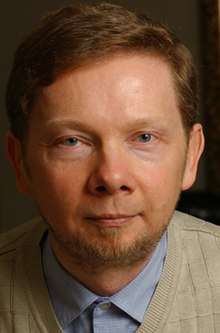
The reason why you don't put your hand in the fire is not because of fear, it's because you know you'll get burned. You don't need fear to avoid an unnecessary danger, just a minimum of intelligence and common sense.
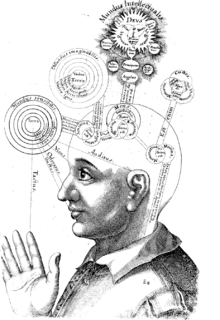
When you listen to a thought, you are aware not only of the thought but also of yourself as the witness of the thought. A new dimension of consciousness has come in.
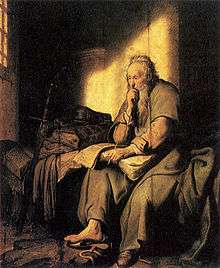
The one constant factor in your life. No matter what happens. No matter how much your life changes. One thing is certain. It's always now.

To let go of judgment does not mean that you don’t see what they do....If her past were your past, her pain your pain, her level of consciousness your level of consciousness, you would think and act exactly as she does. With this realization comes forgiveness, compassion, peace.

The primary cause of unhappiness is never the situation but your thoughts about it. Be aware of the thoughts you are thinking.
_-_Google_Art_Project.jpg)
The more shared past there is in a relationship, the more present you need to be; otherwise, you will be forced to relive the past again and again.
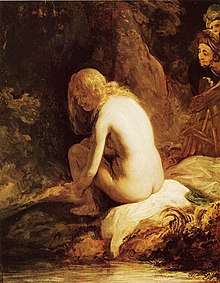
Equating the physical body with "I," the body that is destined to grow old, wither, and die, always leads to suffering... If you don't equate the body with who you are, when beauty fades, vigor diminishes, or the body becomes incapacitated, this will not affect your sense of worth or identity in any way. In fact, as the body begins to weaken, the light of consciousness can shine more easily.

You do not become good by trying to be good, but by finding the goodness that is already within you and allowing that goodness to emerge.
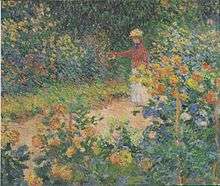
The moment that judgement stops through acceptance of what it is, you are free of the mind. You have made room for love, for joy, for peace.
Eckhart Tolle (born Ulrich Leonard Tölle on 16 February 1948) is a German / Canadian spiritual teacher, motivational speaker, and writer.
- See also: The Power of Now
Quotes
- Many people live habitually as if the present moment were an obstacle that they need to overcome in order to get to the next moment, and imagine living your whole life like that. Always, this moment is not quite good enough because you need to get to the next one.
- ABC News Interview
The Power of Now (1997)
- “I cannot live with myself any longer.” This was the thought that kept repeating itself in my mind. Then suddenly I became aware of what a peculiar thought it was. “Am I one or two? If I cannot live with myself, there must be two of me: the ‘I’ and the ‘self’ that ‘I’ cannot live with.” “Maybe,” I thought, “only one of them is real.”
- When you listen to a thought, you are aware not only of the thought but also of yourself as the witness of the thought. A new dimension of consciousness has come in.
- You are here to enable the divine purpose of the universe to unfold. That is how important you are!
- You can practice this by taking any routine activity that normally is only a means to an end and giving it your fullest attention, so that it becomes an end in itself.
- The ego … reduces the present to a means to an end.
- Pleasure is always derived from something outside you, whereas joy arises from within.
- The past gives you an identity and the future holds the promise of salvation. … Both are illusions.
- The future is usually imagined as either better or worse than the present. If the imagined future is better, it gives you hope or pleasurable anticipation. If it is worse, it creates anxiety. Both are illusory.
- Whereas before you dwelt in time and paid brief visits to the Now, have your dwelling place in the Now and pay brief visits to past and future.
- If there is no joy, ease, or lightness in what you are doing, it does not necessarily mean that you need to change what you are doing. It may be sufficient to change the how. “How” is always more important than “what.” See if you can give much more attention to the doing than to the result that you want to achieve through it.
- To be free of time is to be free of the psychological need of past for your identity and future for your fulfillment.
- Ask yourself what “problem” you have right now, not next year, tomorrow, or five minutes from now. What is wrong with this moment?
- The reason why you don't put your hand in the fire is not because of fear, it's because you know you'll get burned. You don't need fear to avoid an unnecessary danger, just a minimum of intelligence and common sense.
- If your destination, or the steps you are going to take in the future, take up so much of your attention that they become more important to you than the step you are taking now, then you completely miss the journey’s inner purpose, which has nothing to do with where you are going or what you are doing, but everything to do with how. It has nothing to do with future but everything to do with the quality of your consciousness at this moment.
- Every outer purpose is doomed to “fail” sooner or later, simply because it is subject to the law of impermanence of all things.
Stillness Speaks (2003)
- “I am bored.” Who knows this?
“I am angry, sad, afraid.” Who knows this?
You are the knowing, not the condition that is known.
- Be there as the witnessing presence of your inner state. You don’t have to do anything. With the awareness comes transformation and freedom.
- On the surface it seems that the present moment is only one of many, many moments. Each day of your life appears to consist of thousands of moments where different things happen. Yet if you look more deeply, is there not only one moment, ever? Is life ever not this moment? This one moment, now, is the only thing you can never escape from. The one constant factor in your life. No matter what happens. No matter how much your life changes. One thing is certain. Its always now. Since there is no escape from the now, why not welcome it, become friendly with it.
- Do you treat this moment as if it were an obstacle to be overcome? Do you feel you have a future moment to get to that is more important?
Almost everyone lives like this most of the time. Since the future never arrives, except as the present, it is a dysfunctional way to live. It generates a constant undercurrent of unease, tension, and discontent. It does not honor life, which is Now and never not Now.
- I am not my thoughts, emotions, sense perceptions, and experiences. I am not the content of my life. I am Life. I am the space in which all things happen. I am consciousness.
- When you look at a tree, you are aware of the tree. When you have a thought or feeling, you are aware of that thought or feeling. When you have a pleasurable or painful experience, you are aware of that experience. These seem to be true and obvious statements. Yet if you look at them very closely, you will find that in a subtle way their very structure contains a fundamental illusion, an illusion which is unavoidable when you use language. Thought and language create an apparent duality and a separate person where there is none.
The truth is you are not somebody who is aware of the tree, the thought, feeling or experience. You are the awareness or consciousness in and by which those things appear. As you go about your life, can you be aware of yourself as the awareness in which the entire content of your life unfolds?
- You say, “I want to know myself.” You are the I. You are the knowing. You are the consciousness through which everything is known and that cannot know itself. It is itself. There is nothing to know beyond that. And yet all knowing arises out of it. The “I” cannot make itself into an object of knowledge, of consciousness.
So you cannot become an object to yourself. That is the very reason the illusion of egoic identity arose because mentally you made yourself into an object. “That's me,” you say, and then you begin to have a relationship with yourself and tell others and yourself your story.
- By knowing yourself as the awareness in which phenomenal existence happens, you become free of dependency on phenomena and free of self seeking in situations, places, and conditions. In other words, what happens or doesn't happen is not that important anymore. Things lose their heaviness, their seriousness. A playfulness comes into your life. You recognize this world as a cosmic dance, the dance of form.
- Surrender is surrender to this moment, not to a story through which you interpret this moment and then try to resign yourself to it. … Can you accept the isness of this moment and not confuse it with a story the mind has created around it?
- To let go of judgment does not mean that you don’t see what they do. It means that you recognize their behavior as a form of conditioning, and you see it and accept it as that. You don’t construct an identity out of it for that person.
That liberates you as well as the other person from identification with conditioning, with form, with mind.
- If her past were your past, her pain your pain, her level of consciousness your level of consciousness, you would think and act exactly as she does. With this realization comes forgiveness, compassion, peace.
- … the ego's need to be periodically in conflict with something or someone in order to strengthen its sense of separation between me and the other, without which it cannot survive.
- Whenever you meet anyone, no matter how briefly, do you acknowledge their being by giving them your full attention, or are you reducing them to a means to an end, a mere function or role. What is the quality of your relationship with the cashier at the supermarket, the parking attendant, the repair man, the customer?
A New Earth (2005)
- The inspiration for the title of this book came from a Bible prophecy that seems more applicable now than at any other time in human history. It occurs in both the Old and the New Testament and speaks of the collapse of the existing world order and the arising of “a new heaven and a new earth." We need to understand here that heaven is not a location but refers to the inner realm of consciousness. This is the esoteric meaning of the word, and this is also its meaning in the teachings of Jesus.
- Collective human consciousness and life on our planet are intrinsically connected. “A new heaven” is the emergence of a transformed state of human consciousness, and “a new earth” is its reflection in the physical realm.
- The greatest achievement of humanity is not its works of art, science, or technology, but the recognition of its own dysfunction, its own madness.
- In the distant past, this recognition already came to a few individuals. A man called Gautama Siddhartha, who lived 2,600 years ago in India, was perhaps the first who saw it with absolute clarity. Later the title Buddha was conferred upon him. Buddha means “the awakened one.”
- Another of humanity’s early awakened teachers emerged in China. His name was Lao Tzu. He left a record of his teaching in the form of one of the most profound spiritual books ever written, the Tao Te Ching.
- To recognize one’s own insanity, is of course, the arising of sanity, the beginning of healing and transcendence.
- Is humanity ready for a transformation of consciousness, an inner flowering so radical and profound that compared to it the flowering of plants, no matter how beautiful, is only a pale reflection? Can human beings lose the density of their conditioned mind structures and become like crystals or precious stones, so to speak, transparent to the light of consciousness? Can they defy the gravitational pull of materialism and materiality and rise above identification with form that keeps the ego in place and condemns them to imprisonment within their own personality?
- The possibility of such a transformation has been the central message of the great wisdom teachings of humankind. The messengers—Buddha, Jesus, and others, not all of them known—were humanity's early flowers. They were precursors, rare and precious beings. A widespread flowering was not yet possible at that time, and their message became largely misunderstood and often greatly distorted. It certainly did not transform human behavior, except in a small minority of people.
- This book itself is a transformational device that has come out of the arising new consciousness. The ideas and concepts presented here may be important, but they are secondary. They are no more than signposts pointing toward awakening. As you read, a shift takes place within you.
- What a liberation to realize that the "voice in my head" is not who I am. Who am I then? The one who sees that.
- Only by awakening can you know the true meaning of that word.
- When you don't cover up the world with words and labels, a sense of the miraculous returns to your life.
- How do you let go of attachment to things? Don't even try. It's impossible. Attachment to things drops away by itself when you no longer seek to find yourself in them.
- Accepting means you allow yourself to feel whatever it is you are feeling at that moment...you can't argue with what is. Well, you can, but if you do, you suffer.
- The more unconscious individuals, groups, or nations are, the more likely it is that egoic pathology will assume the form of physical violence. Violence is a primitive but still very widespread way in which the ego attempts to assert itself, to prove itself right or another wrong. With very unconscious people, arguments can easily lead to physical violence.
- Awareness is the greatest agent for change.
- You do not become good by trying to be good, but by finding the goodness that is already within you, and allowing that goodness to emerge.
- Teachings that pointed the way beyond the dysfunction of the human mind, the way out of the collective insanity, were distorted and became themselves part of the insanity.
And so religions, to a large extent, became divisive rather than unifying forces. Instead of bringing about an ending of violence and hatred through a realization of the fundamental oneness of all life, they brought more violence and hatred, more divisions between people as well as between different religions and even within the same religion.
- Instead of asking "what do I want from life?", a more powerful question is, "what does life want from me?"
- You cannot be both unhappy and fully present in the Now.
- Nothing ever happened in the past that can prevent you from being present now; and if the past cannot prevent you from being present now, what power does it have?
- All the things that truly matter - beauty, love, creativity, joy, inner peace - arise from beyond the mind.
- You cannot find yourself in the past or future. The only place where you can find yourself is in the Now.
- When you lose touch with inner stillness, you lose touch with yourself.
- Suffering has a noble purpose: the evolution of the consciousness and the burning up of the ego.
- A new species is arising on the planet. It is arising now, and you are it!
- Being must be felt. It can't be thought.
- Listen to people's stories and they all could be entitled "Why I Cannot Be At Peace Now" The ego doesn't know that your only opportunity for being at peace is now.
- Presence is a state of inner spaciousness.
- Nonresistance is the key to the greatest power in the universe.
- Being spiritual has nothing to do with what you believe and everything to do with your state of consciousness.
- When you lose touch with inner stillness, you lose touch with yourself. When you lose touch with yourself, you lose yourself in the world.
- The human condition: lost in thought.
- Life is the dancer and you are the dance.
- What you react to in others, you strengthen in yourself.
- We could say that the totality, life wants the sapling to become a tree, but the sapling doesn't see itself as separate from life and so wants nothing for itself. It is one with what life wants. That's why it isn't worried or stressed. And, if it has to die prematurely, it dies with ease.....
- When you accept everything for what it is without labels you are outside of your ego.
- Right now we are being given the experience we need to raise our consciousness.
Oneness With All Life: Inspirational Selections from A New Earth (2008)
- For this companion volume to A New Earth, I selected passages from the original book that felt particularly suitable for inspirational or meditative reading. For this reason I do not recommend that you read this book straight through from cover to cover. It would be far more beneficial to read, at the most, one chapter at a time, stopping at and perhaps rereading whatever passages elicit an inner response. Then let the words sink in and sense the truth to which they point, which is, of course, already within you. It can also be helpful to open the book at random occasionally, read one page or just one passage and let the words point the way to that dimension deep within that is beyond words, beyond thought. The truth to which the words point, the timeless dimension of consciousness, cannot be arrived at through discursive thought and conceptual understanding.
- From The Introduction
- The primary cause of unhappiness is never the situation but your thoughts about it. Be aware of the thoughts you are thinking. Separate them from the situation, which is always neutral. There is the situation or the fact, and here are my thoughts about it. Life isn't as serious as the mind makes it out to be.
- Try to catch the voice in your head, in the very moment it complains about something. Recognise it for what it is: the voice of the ego, no more than a thought.
- People believe themselves to be dependent on what happens to them for their happiness. They don't realize that what happens is the most unstable thing in the universe. It changes constantly. They look upon the present moment as either marred by something that has happened and shouldn't have or as deficient because of something that has not happened but should have.
- The more shared past there is in a relationship, the more present you need to be; otherwise, you will be forced to relive the past again and again.
- Equating the physical body with "I," the body that is destined to grow old, wither, and die, always leads to suffering. To refrain from identifying with the body doesn't mean that you no longer care for it. If it is strong, beautiful, or vigorous, you can appreciate those attributes—while they last. You can also improve the body's condition through nutrition and exercise. If you don't equate the body with who you are, when beauty fades, vigor diminishes, or the body becomes incapacitated, this will not affect your sense of worth or identity in any way. In fact, as the body begins to weaken, the light of consciousness can shine more easily.
- You do not become good by trying to be good, but by finding the goodness that is already within you and allowing that goodness to emerge. If peace is really what you want, then choose peace. The moment that judgement stops through acceptance of what it is, you are free of the mind. You have made room for love, for joy, for peace.
External links
- Official website
- Parker, John W. (2000). Dialogues With Emerging Spiritual Teachers. Interview.
- Minzesheimer, Bob (March 2, 2008). "Oprah brings Tolle's 'Earth' to the classroom". USA Today.
This article is issued from
Wikiquote.
The text is licensed under Creative
Commons - Attribution - Sharealike.
Additional terms may apply for the media files.